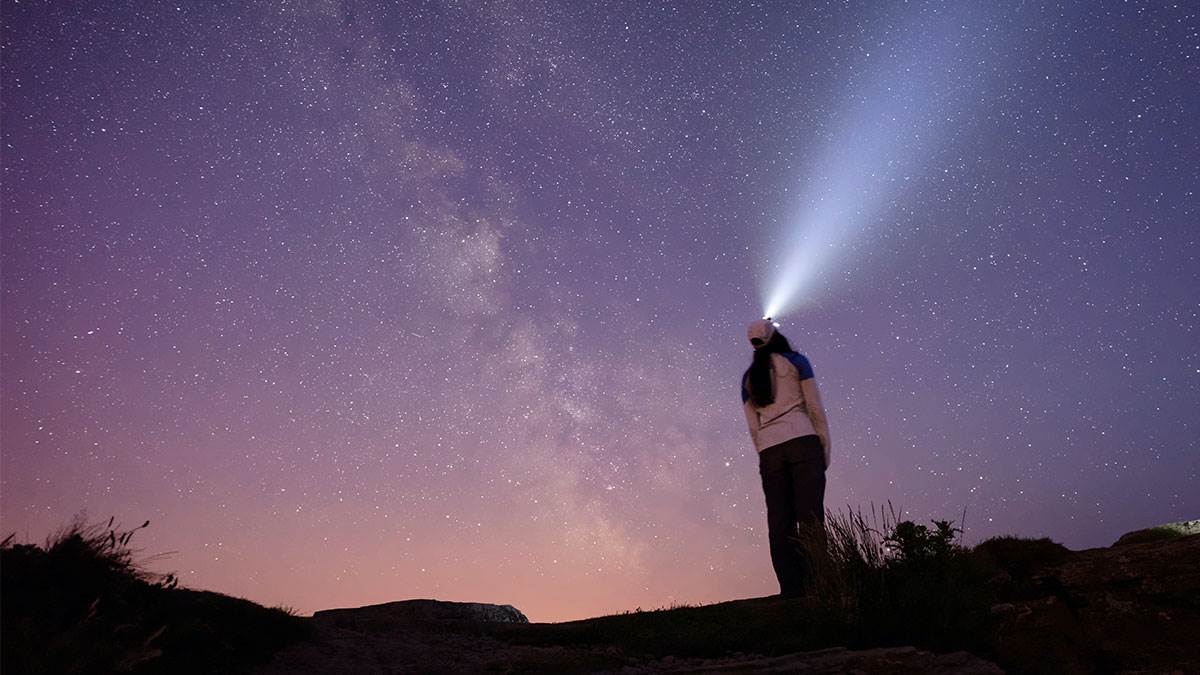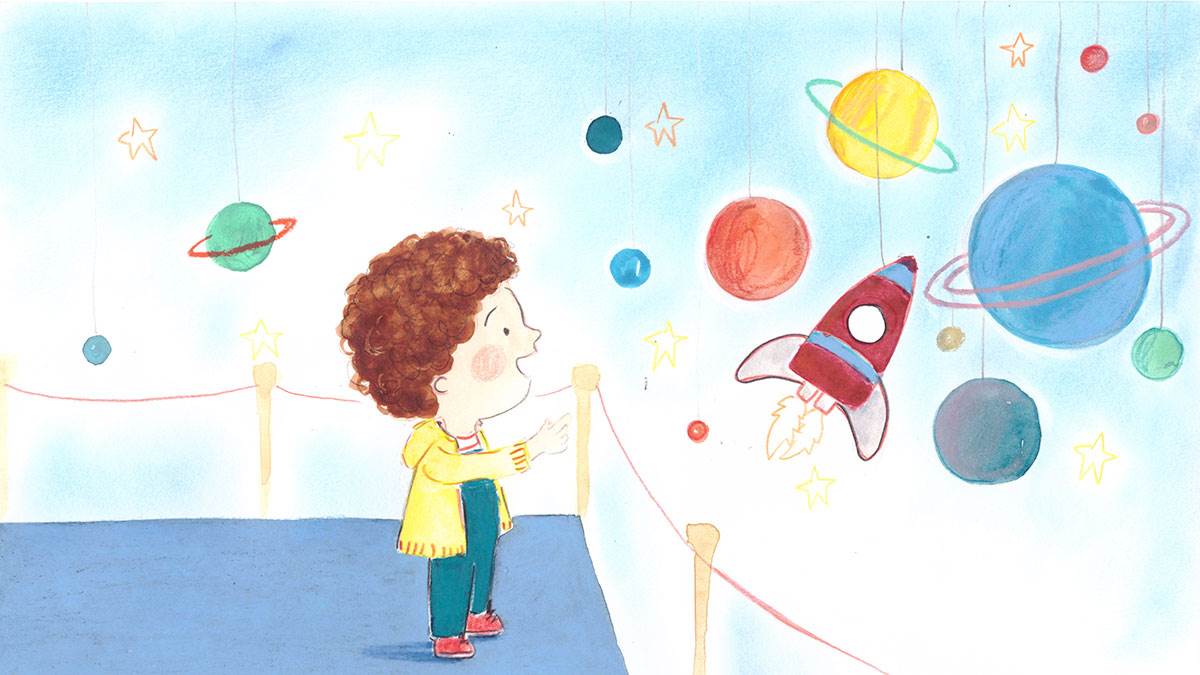Meet five women whose contribution to astronomy and science was out of this world
Published on: 09 May 2022 Author: Annaliese Avery
Author and space enthusiastic Annaliese Avery wants everyone to know the names of these five women: scientists and thinkers who looked up and dared to ask important questions about the universe. How many do you know?

I have been interested in space and the stars for as long as I can remember. The stars have always been important to me and when I set about writing The Nightsilver Promise, I knew that they would be important for my main character Paisley, too.
When I was little, I had posters of space shuttles on my wall, as well as a map of the stars. I learnt about constellations and watched luna eclipses out of the window with my trusty binoculars.
One of the things that I have grown to love so much about astronomy is how accessible it is. Anyone can walk outside on a clear night and look up. It doesn’t take much to get into astronomy and space science – there are lots of resources freely available and, as long as it’s not cloudy, the stars are always there.
I thought I’d share with you a few of the inspirational women in astronomy and space science that I have learnt about over the years and felt encouraged by to follow in their spirit of endeavour and exploration. I am sure that each of them started their scientific journeys of discovery by looking up and being moved to ask questions about the nature of our universe and to seek those answers for themselves...
1. Mae Jemison (born 17 October 1956)
When I was a teenager, I had a poster of Mae Jemison on my wall alongside that of the Space Shuttle Discovery. Mae Jemison was part of the crew that manned the 50th Space Shuttle mission aboard the Space Shuttle Endeavour. In their almost eight-day stay in space, the crew performed many microgravity experiments in the Spacelab-J onboard Endeavour.
Mae Jemison is a medical doctor and an engineer, as well as an astronaut, and performed many experiments during the mission. I remember reading an article where she said that Star Trek was her favourite show and one of the reasons why she wanted to be an astronaut. I, too, love Star Trek and also thought that being an astronaut, like Jamison, would be pretty fantastic. Mae Jemison, along with Captain Jean-Luc Picard, was a childhood hero of mine.
Read our review of Work It, Girl: Blast Off Into Space Like Mae Jemison
2. Margaret Hamilton (born 17 August 1936)
Although the Apollo space missions ended almost a decade before I was born, I read a lot about them when I was young. (I also had an Apollo mission poster on my wall with all of the mission patches on it.) Margaret Hamilton was an instrumental part of these space missions: she worked for MIT as a software developer and oversaw the team that wrote the computer code that was so vital for landing on the moon. There is a famous picture of her standing next to the printed-out volumes of code that are in a stack, taller than she is. Although not an astronomer, space scientist or explorer, without the ingenuity, expertise and vision of Margaret Hamilton, our knowledge of space would be greatly impeded. Space exploration pulls many avenues of thinking together, uniting them behind a common goal, which serves the expansion of knowledge and frontiers.
3. Caroline Herschel (16 March 1750 - 9 January 1848)
Caroline Hershel was one of the first female astronomers that I learned about; she was one of the first of a new age in astronomy where women were looking up and shining brightly.
When her brother William became interested in astronomy, Caroline reluctantly followed his lead. To start with, she wasn’t that interested in astronomy, but it would seem that the stars captured her interest. She went on to become her brother’s assistant when he was appointed Court Astronomer by George III. I remember reading that Caroline Herschel was the first woman to be paid for being an astronomer, and was also one of the first women to be admitted into the Royal Astronomical Society. Caroline discovered many comets and, along with her brother, advanced astronomical understanding through the observations and telescopes that they made.
4. Jocelyn Bell Burnell (born 15 July 1943)
When astrophysicist Jocelyn Bell Burnell was a postgraduate student in 1967, she discovered the first radio evidence of pulsars (a neutron star that is magnetised and as it rotates, sends out a jet of electromagnetic radiation – this is what Jocelyn detected). Her discovery would go on to win a Nobel Prize in Physics, but she was not one of the recipients of the award. Jocelyn went on to become president of The Royal Astronomical Society and the Institute of Physics and enjoyed a long career as an astronomer and professor at various institutions, internationally. When I was a teenager, I wanted to be an astrophysicist and Jocelyn Bell Brunell was a huge inspiration.
5. Hypatia (c. 350–370 AD - March 415 AD)
In the ancient city of Alexandria lived a famous philosopher, mathematician and astronomer named Hypatia: she was one of the first women scientists to have her work and life recorded. Hypatia was a Neoplatonist who taught philosophy and astronomy in Alexandria, and she was regarded as one of the prominent thinkers of her time. She gave consult to many, including Orestes, the Roman prefect of Alexandria. It was this that was thought to have led to Hypatia’s murder. After her death, she became a “martyr to philosophy” and encouraged many Neoplatonists to oppose Christianity. She also became an important symbol during the enlightenment era, which I was studying when I first learned about her and thought she was not only obviously brilliant but also brave for following her passions and beliefs in a time where it was dangerous for women to do both.
 Illustration: Fiona Lumbers
Illustration: Fiona Lumbers
To boldly go...
I don’t think I’d be the person that I am today without my love of the stars. I definitely wouldn’t have written The Nightsilver Promise or The Doomfire Secret – the stars and science are as integral a part of the story as they are a part of me.
If you would like to learn about astronomy and space science, your local library is a great place to start. There will be lots of books on the subject for you to borrow. You might also want to contact your local astronomical society, as many of them have public outreach sessions where you can look through telescopes and get to explore the universe around us up close and first-hand.
You might also like...
Find out more about some of the incredible women who have changed the world, or satisfy curious minds with our brilliant science book recommendations!
Celebrating inspirational women
Whether it's International Women's Day or not, it's always worth pointing out and celebrating the – often forgotten or undervalued – achievements of women, both past and present.
Books about space
These great intergalactic adventures for all ages will take you on exciting interstellar journeys through the cosmos...







